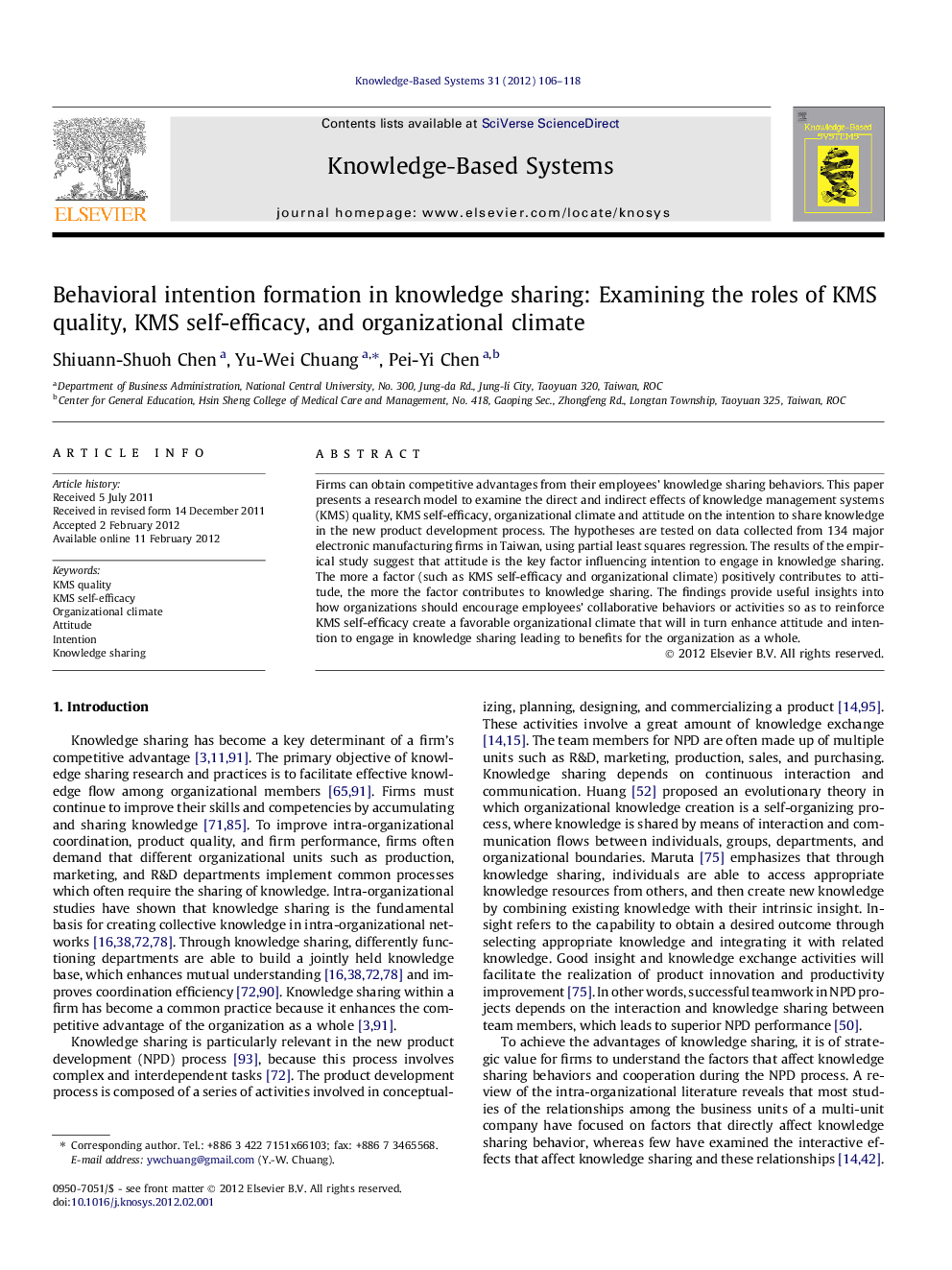| Article ID | Journal | Published Year | Pages | File Type |
|---|---|---|---|---|
| 402937 | Knowledge-Based Systems | 2012 | 13 Pages |
Firms can obtain competitive advantages from their employees’ knowledge sharing behaviors. This paper presents a research model to examine the direct and indirect effects of knowledge management systems (KMS) quality, KMS self-efficacy, organizational climate and attitude on the intention to share knowledge in the new product development process. The hypotheses are tested on data collected from 134 major electronic manufacturing firms in Taiwan, using partial least squares regression. The results of the empirical study suggest that attitude is the key factor influencing intention to engage in knowledge sharing. The more a factor (such as KMS self-efficacy and organizational climate) positively contributes to attitude, the more the factor contributes to knowledge sharing. The findings provide useful insights into how organizations should encourage employees’ collaborative behaviors or activities so as to reinforce KMS self-efficacy create a favorable organizational climate that will in turn enhance attitude and intention to engage in knowledge sharing leading to benefits for the organization as a whole.
